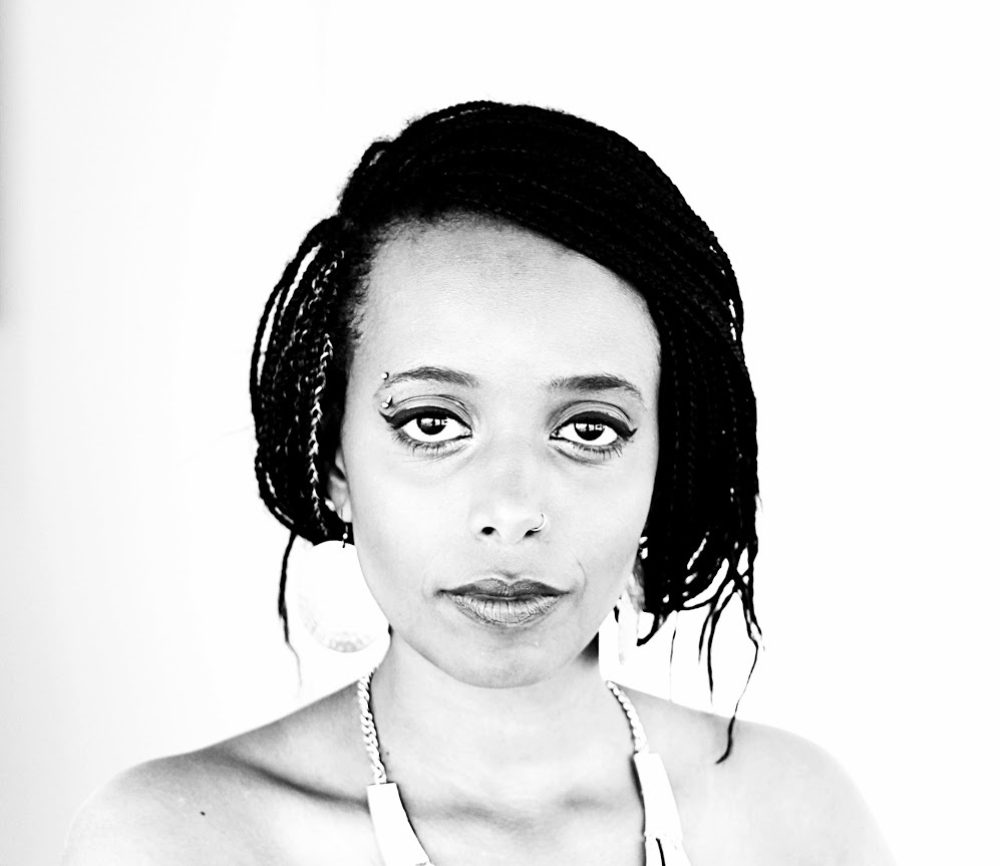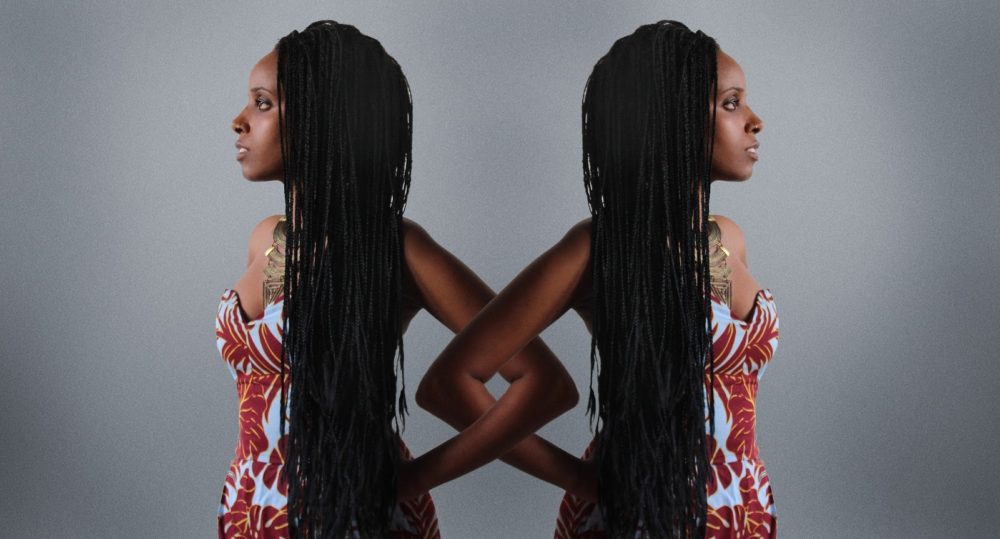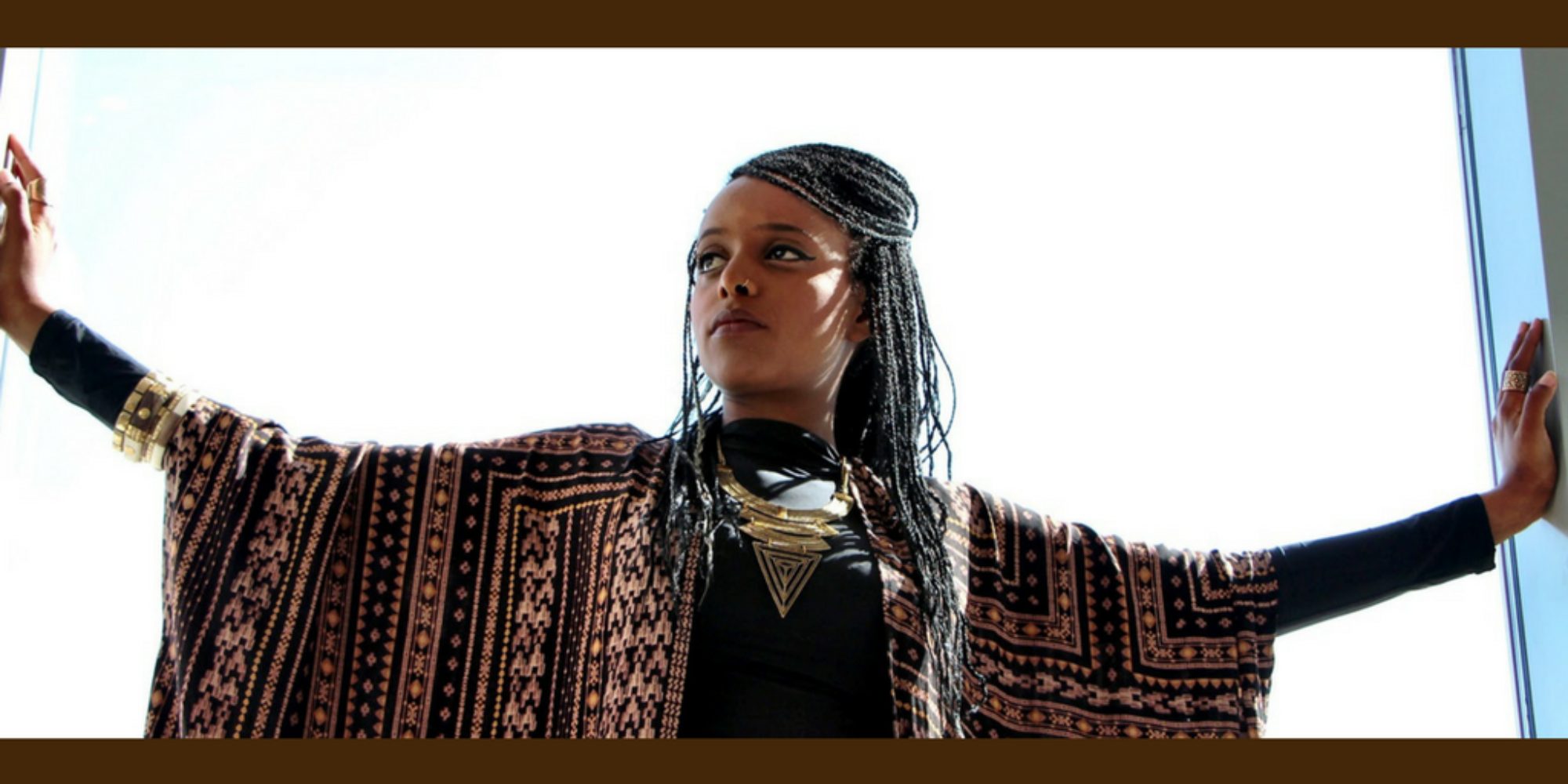
One of the acts that most impressed us at this year's Mundial Montreal world music showcase was an Ethiopian-Israeli singer named Aveva Dese. We spoke to Aveva, who was in New York getting ready to work on her second album to be recorded there and in Israel, to learn more about the artist and her music, which she describes as a new brand of “Afro-soul.”
As a small girl growing up in Israel, Aveva says she always loved singing, but “I was a shy girl. So I didn't do anything serious with that.”
Aveva is part of a first generation of Ethiopian Jews who were born and raised in Israel. Also known as “Beta Israel” or “Israelites,” the community was first established in Ethiopia during the 4th century A.D. Aveva's parents were among thousands of refugees living in Sudanese refugee camps in the early 1980s, escaping the civil war in Ethiopia. In a joint effort between the governments of Israel and the United States, dubbed “Operation Moses,” the Sudanese government allowed them to leave and many resettled in Israel.
“When I was a kid I always used to listen to American soul music and that was my main music I listened to,” Aveva says. She adds she was a huge fan of Whitney Houston and Lauryn Hill at the time. “Also, Aretha Franklin, Etta James, Stevie Wonder and Michael Jackson. I listened to a lot of soul pop. Not much Israeli, and not much Ethiopian, even though Ethiopian music was in the background. My parents and my older sisters used to listen to it, but it didn't interest me. I wasn't interested in getting to know the music or the culture, because I was too busy trying to be relevant to other kids and being accepted. So I didn't want to straddle two different worlds.”
Then, during her stint in the Israeli army, she was injured in a car accident and had to spend a year in recovery.

“So I had a lot of free time,” she explains, “and music was my escape. Then I moved to a kibbutz and lived there for a year and a half,” where she made friends with a girl who was working on what would be the first TV season of Israel's version of The Voice. “She was like, 'You should really come,' and convinced me to do it. That was the first time I sang professionally. I had some lessons before that, so that was the first step I did.”
While Aveva didn't win the televised competition, it was through the show she met Yehuda Eder, who was “head of a big music school in Israel called Rimon. He became my mentor for that time because I really didn't have much of a clue as to being in music professionally. He convinced me to come study there right after The Voice. At Rimon, different teachers introduced us to music from different cultures. I had this project where we worked on African music, and that got me to listen to more and more Ethiopian music. That was the point I discovered it—not really discovered, because it's always been there—but I was like ready to dig in and get to know the culture and music. And I really fell in love with it and only wanted to learn more and more about it.”
At the music school Aveva met the musicians who would form the core of her band and developed a sound that would integrate all her different influences and aspects of herself.
“I had a long process to find my identity,” she says. “When I was a kid I was trying to be more Israeli, and thought I needed to give away this part of the Ethiopian culture in me, as I said. But when I grew up—and especially through the music—I realized it's a beautiful part and I don't want to let it go. I really wanted to share that part, and I decided I needed to bring in more parts of it into my music.
“I'm now still trying to learn the language better, because I don't speak it fluently,” she admits. “I study it through the music and I've also traveled twice in the last two years to Ethiopia, as I'd never been there. It was amazing. It's really a part I'm starting to embrace in the last few years. Ethiopia is such a beautiful, beautiful place; even though I've only seen a small part. I went to the village where my family came from and have a song on the first album I call 'Unfraz,' which is the name of that village.”
Aveva explains that her music doesn't exactly use Ethiopian rhythms, but “in some of the songs, we use some Ethiopian scales. I also like to mix some of the language and sing between English with Amharic,” the national language of Ethiopia.
She points to the title track of her first album, “Who Am I?” as an example of how she integrates the Ethiopian influences into her music. “I sing it in both Amharic and English. We also used Ethiopian instruments, like the masenqo [a traditional single-string lute], krar [a bowl-shaped lyre], and an Ethiopian type of flute, which you can definitely hear on that song.”
She explains the song is about “the question within myself—Who am I? But also, who am I to the other person in front of me in a relationship, or sometimes within a community. Like sometimes you can lose yourself because you might want this person to like you, so you act differently with them. You feel insecure, act differently and may not always recognize yourself because you lose yourself in them. You can get it in your head that you're not good enough for them. This song talks about the relationship between two different people who came from two different worlds and the doubts in relationships like this. This story happened to me once, and I think it happens to a lot of people. Eventually, if you give in to those doubts, you will break something that could have been great—all because you couldn't move forward from those doubts.”
We asked Aveva if part of this question of identity is related to racism she may have experienced at home or abroad.
“I always say I haven't experienced something major with racism in Israel, but I think it's something you have pretty much everywhere, so we do have it in Israel too,” she answers. “When you're in a good environment you can get to know a lot of cultures, embrace some of these things and experience different things with different friends you have. Like my guitar player is part Russian and part Iraqi. When you get to know all these different kinds of people, you can erase stereotypes and let go of those ideas in your mind. You can realize people are not really that different. I live in Jaffa and there's such a great mix of people. There's many Arabs. I have more faith in humanity when I see different people getting along together there.
“But I think we haven't gotten to this place where color doesn't matter,” she continues. “People still think in terms of stereotypes or groups, and I think it's hard to get over that. I think it will take a long, long time to get to that place where it doesn't really matter. But I really think that we are going forward. It will happen. It will only take time.
“I have this song I wrote after listening to a speech by Martin Luther King, in which he said he thinks the answer for why we still have racism is because it's a lie somebody told a long time ago and grew with us and became part of us, so it's very hard to let go of. It's stuck in our minds and we really need to work hard to make it go away. I don't think everyone realizes that it's a real problem everywhere and it's in everyone's mind. We may be different, but we're all equal. It's good that we're all different. It makes the world more interesting that way. The song is going to be on the new album which I'm working on right now. It's called 'Freedom'.”
She tells us that she expects the new album to be released this coming spring, and that she's continuing her exploration of her Ethiopian roots.
“It might have some new sounds in it,” she says, “but it's also important for me to keep the Ethiopian part. Maybe some more Amharic in it, also Ethiopian instruments in it too, but it's going to be more updated sounds... let's say that. We're combining some live sounds, but also a bit of electronic sounds. We’re going to work really fast on it.”
When we asked when she expects to come back to the West on tour, she answers, laughing: “We like playing everywhere. If you invite us, we'll come play.”
Aveva's album, Who Am I?, is available as a download at Bandcamp.
Related Articles









